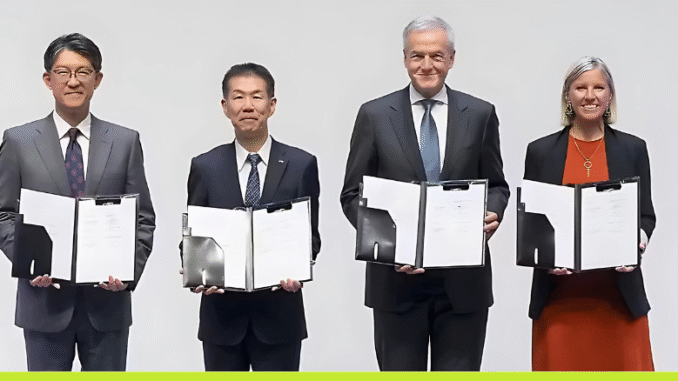
In a major step toward electrifying the commercial vehicle sector, Toyota and Daimler Truck have announced a $1 billion merger of their respective truck units, Hino Motors and Mitsubishi Fuso. The companies will form a new joint holding company by April 2026, aiming to streamline development and production of electric and autonomous trucks.
Key Highlights of the Merger
- $1 Billion Deal includes the transfer of Hino’s key manufacturing facility (Hamura plant) to Toyota.
- New Joint Entity: Toyota and Daimler Truck will each own 25%.
- Launch Timeline: New company expected to launch by April 2026.
- Objective: Fast-track innovation in zero-emission, connected, and autonomous commercial vehicles.
Strategic Reasons Behind the Merger
The move comes as both companies face:
- Rising R&D costs
- Global supply chain disruptions
- Labour shortages
- Growing competition from new and traditional players in the EV space
Pooling resources allows Toyota and Daimler Truck to boost efficiency and stay competitive in the rapidly evolving transportation industry.
Hino’s Recovery and Toyota’s Strategic Gain
- Hino Motors is recovering from a damaging 2022 emissions-testing scandal that hurt its reputation and Toyota’s credibility.
- As part of the deal, Hino will:
- Transfer its Hamura plant to Toyota for $1 billion.
- Issue new shares to support the restructuring.
- This plant transfer gives Toyota direct control over Hino’s production assets, strengthening its EV truck capabilities.
Mitsubishi Fuso’s Turnaround Opportunity
- Mitsubishi Fuso, which has recently underperformed financially, will benefit from:
- Shared R&D and sourcing
- Increased production efficiency
- A stronger competitive footing within the new combined entity
According to analysts, the increased scale and synergy will help reduce costs and improve profitability across both brands.
Independent Ventures Will Continue
Despite the merger:
- Toyota confirmed that its independent partnerships with Volvo and Isuzu Motors—both of which also collaborate with Daimler Truck—will not be affected.
This ensures that Toyota remains agile and diversified in its broader commercial vehicle strategy.
Executive Commentary
“This merger is a pivotal step toward a shared future,”
said Koji Sato, CEO of Toyota.
“It strengthens our ability to deliver advanced, sustainable mobility solutions for the next era of transportation.”
What This Means for the Industry
This landmark merger is a clear signal that traditional automakers are:
- Doubling down on electrification
- Restructuring to remain globally competitive
- Pushing forward into autonomous vehicle technology
As the world moves toward a low-emission future, the Toyota-Daimler Truck alliance represents a significant consolidation of expertise and manufacturing power in commercial EV development.




